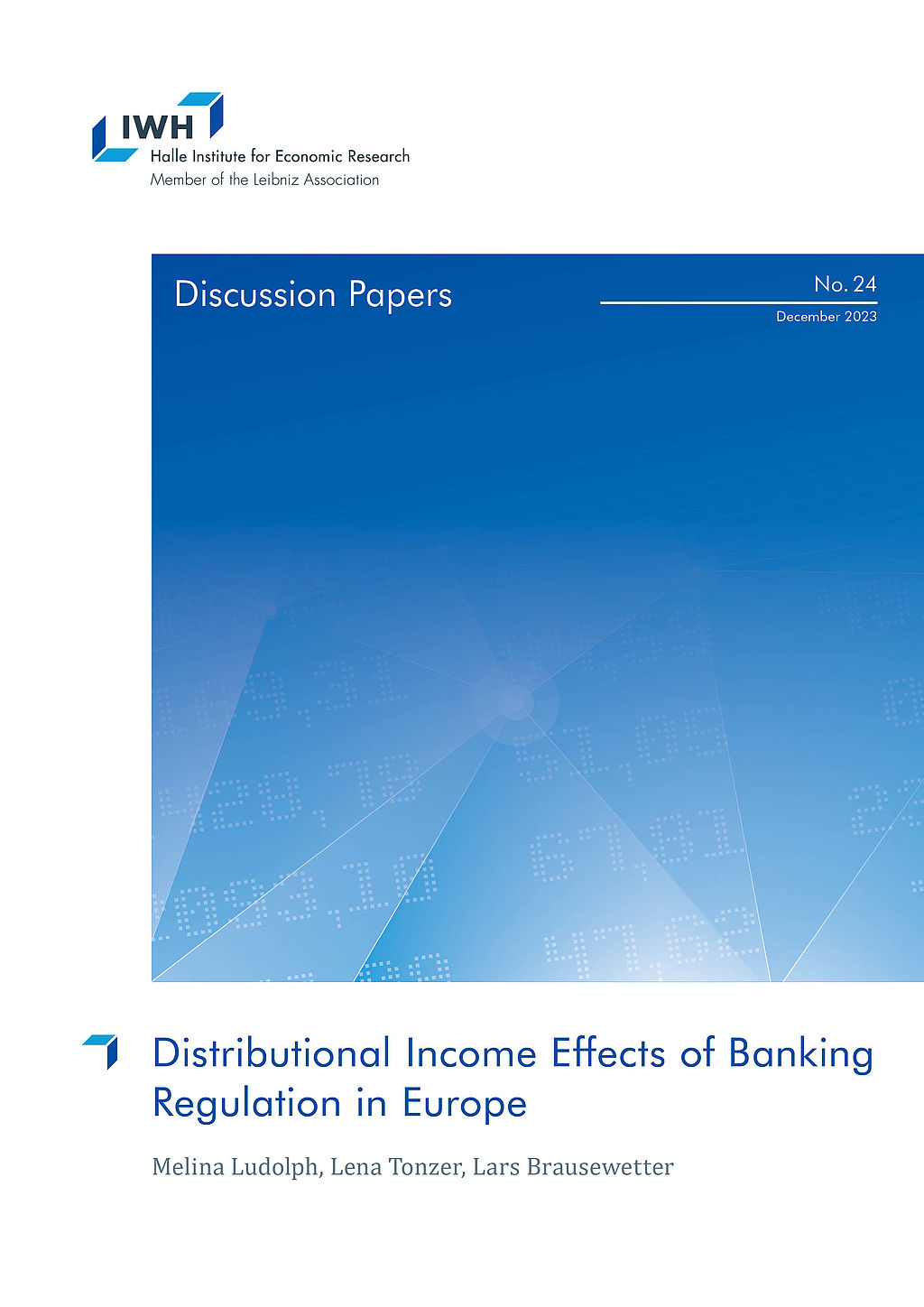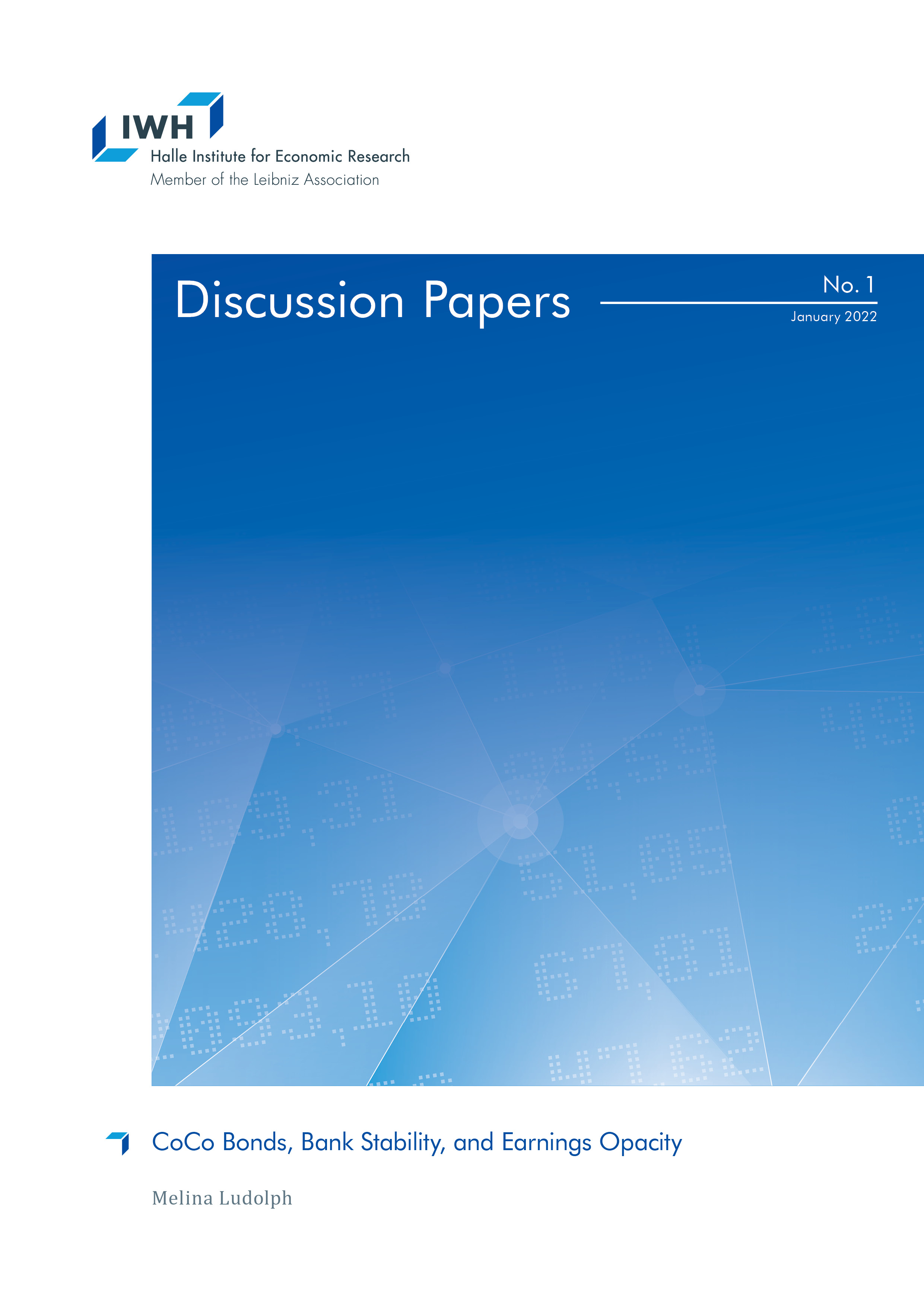Banking, Regulation, and Incentive Structures
This research group aims at advancing our understanding of how banking activities, regulations, and bank employees' incentives interact.
Research Cluster
Financial Resilience and RegulationYour contact

Mitglied - Department Laws, Regulations and Factor Markets
Refereed Publications

The Nexus between Loan Portfolio Size and Volatility: Does Bank Capital Regulation Matter?
in: Journal of Banking and Finance, June 2021
Abstract
This paper analyzes the effects of bank capital regulation on the link between bank size and volatility. Using bank-level data for 27 advanced economies over the 2000–2014 period, we estimate a power law that relates the volume of a bank’s loan portfolio to the volatility of loan growth. Our analysis reveals, first, that more stringent capital regulation weakens the size-volatility nexus. Hence, in countries with more stringent capital regulation, large banks show, ceteris paribus, lower loan portfolio volatility. Second, the effect of tighter capital requirements on the size-volatility nexus becomes stronger for the upper tail of the bank size distribution. This is in line with capitalization decreasing with bank size, such that larger banks tend to be more affected by increasing capital requirements. Third, in countries with higher sectoral capital buffers, the size-volatility nexus is weaker.
Working Papers

Distributional Income Effects of Banking Regulation in Europe
in: IWH Discussion Papers, No. 24, 2023
Abstract
We study the impact of stricter and more harmonized banking regulation along the income distribution using household survey data for 25 EU countries. Exploiting country-level heterogeneity in the implementation of European Banking Union directives allows us to control for confounders and identify effects. Our results show that these regulatory reforms aimed at increasing financial system resilience affected households heterogeneously. More stringent regulation reduces income growth for low-income households due to employment exits. Yet it tends to increase growth rates at the top of the distribution both for employee and self-employed income.

The Adverse Effect of Contingent Convertible Bonds on Bank Stability
in: IWH Discussion Papers, No. 1, 2022
Abstract
This paper examines the effect of CoCo bonds that qualify as additional tier 1 capital on bank fundamentals. The results reveal a significant reduction in the distance to insolvency following the hybrid bond issuance due to increased earnings volatility. Further analyses suggest a link between CoCo issuance and more active earnings management, evidenced by a higher standard deviation of loan loss provisions and impairment charges. The findings substantiate long-standing theoretical hypotheses suggesting that the regulatory design requirements for going-concern CoCos adversely affect bank stability. Furthermore, they correspond to the notion that private monitoring is largely absent as a corrective measure due to prevailing uncertainties and information frictions.








